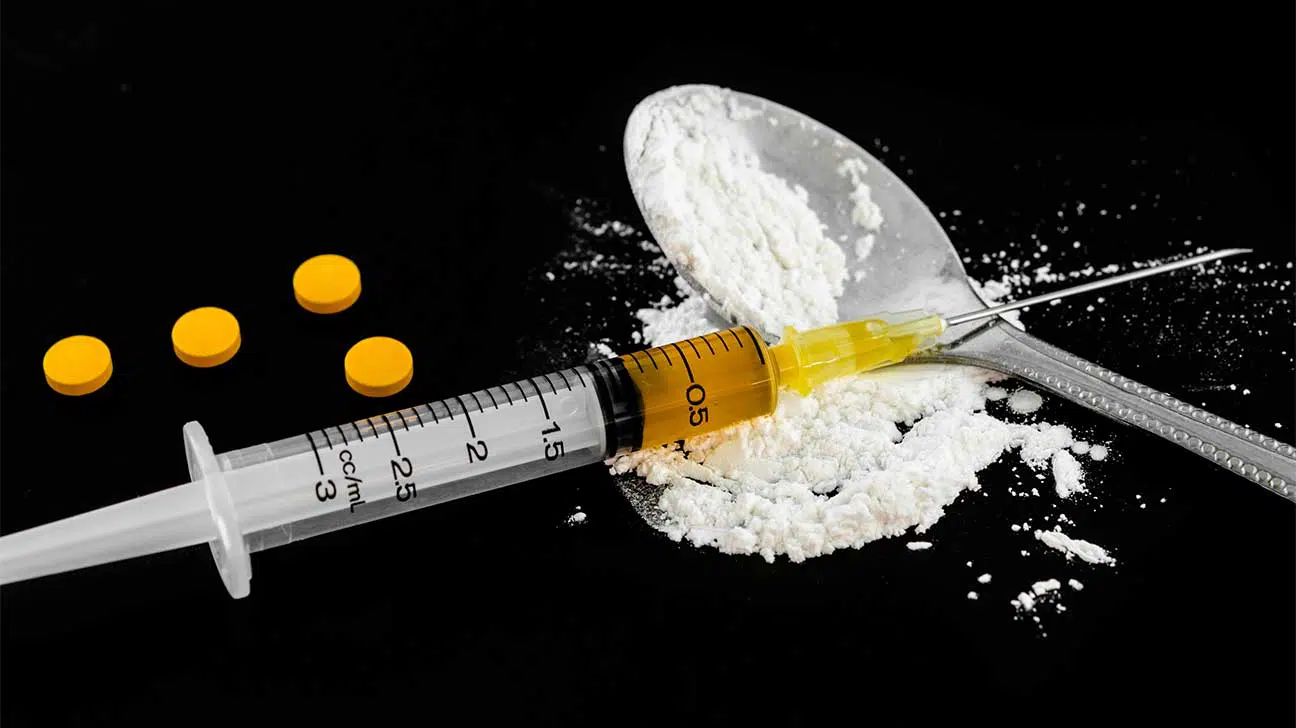
Identifying the smell, appearance, and effects of heroin can be helpful for the purpose of detecting a drug problem in a loved one.
What’s important to know about the smell of heroin is that it doesn’t all smell the same.
Pure heroin—which comes in the form of a shiny, white powder—may not have any smell at all.
Cruder forms of heroin may smell acidic or vinegary, as a result of the chemicals used to process heroin.
What Does Black Tar Heroin Smell Like?
Black tar heroin is the crudest form of heroin. This form of heroin can look dark brown or blackish in color. It can appear as a gummy substance or be hard like a rock.
Black tar heroin is commonly processed with a number of chemicals and may contain additives such as soil, coffee grounds, and rat poison. This can affect what the heroin looks and smells like.
Depending on how it’s used, black tar heroin may have a strong vinegar odor. It may also smell like burnt food when smoked, or smell sweet like sugar or licorice.
What Does Powder Heroin Smell Like?
Heroin can also come in the form of a white or brown powder. White, powdered forms of heroin, also known as China white, is the purest form of heroin. Pure heroin may be odorless.
Unlike methamphetamine, which has a smell often likened to burnt plastic or cleaning products, the smell of heroin can vary.
Vinegar is the most common term used to describe the smell of heroin, although this will largely depend on factors such as added fillers and method of use.
What Heroin Smells Like When Smoked
Black tar heroin is commonly smoked. Like shooting heroin, this can cause quicker effects than snorting the drug up your nose.
When smoked, heroin may smell like:
- sweets (e.g. sugary)
- burnt food
- vinegary
- acidic
- urine
- cat litter
Factors That Can Affect The Smell Of Heroin
The smell of heroin will largely depend on what form it comes in and added fillers. The manufacturing process and origin of the heroin may also affect its smell.
Common fillers and additives in heroin that can affect smell include:
- sugar
- ammonium chloride
- soil
- coffee grounds
- starch
- powdered milk
- rat poison
- quinine
- multivitamin powder
Making heroin can require a number of chemicals. This can affect smell. Not all manufacturing spaces that make heroin use the same processing methods.
Identifying Heroin Abuse And Addiction
The smell of heroin, particularly heroin that is smoked, may be left behind on someone’s clothes or belongings. Usually, heroin can be identified by a vinegary smell.
In addition, other signs of heroin use can include:
- missing spoons (as these are used for liquifying heroin)
- having injection supplies (e.g. syringes, needles)
- chronic fatigue or drowsiness
- changes in physical appearance
- hiding or lying about drug use
- constricted pupils
Chronic use of heroin can be dangerous. Heroin can be very addictive. It can also be fatal when taken in large quantities or when mixed with potent drugs like fentanyl.
Sharing injection supplies—such as spoons, syringes, and needles—can increase the risk of contracting infectious diseases like HIV, hepatitis C, and the coronavirus (COVID-19).
Call Us Today To Find Substance Abuse Treatment
Heroin use can cause a number of physical and mental health problems that may require drug abuse treatment.
If you’re concerned that a family member or other loved one is using heroin, our addiction specialists may be able to help.
Call our helpline today to learn more about heroin and to find heroin addiction treatment options near you.
Addiction Resource aims to provide only the most current, accurate information in regards to addiction and addiction treatment, which means we only reference the most credible sources available.
These include peer-reviewed journals, government entities and academic institutions, and leaders in addiction healthcare and advocacy. Learn more about how we safeguard our content by viewing our editorial policy.
- U.S. Department of Justice (DOJ)
https://www.justice.gov/opioidawareness/opioid-facts - U.S. National Institute on Drug Abuse (NIDA)
https://www.drugabuse.gov/publications/drugfacts/heroin - U.S. National Library of Medicine: NCBI
https://www.ncbi.nlm.nih.gov/pmc/articles/PMC5027195/


